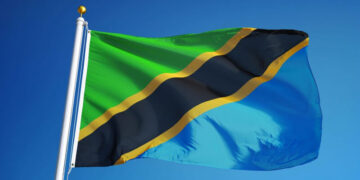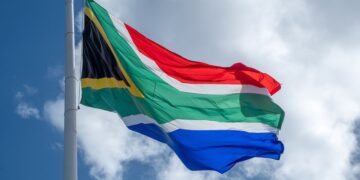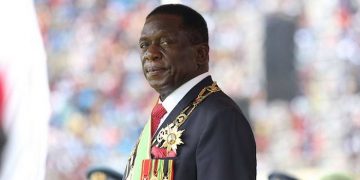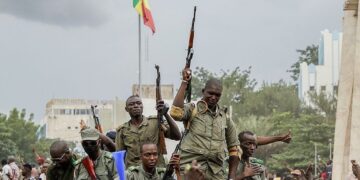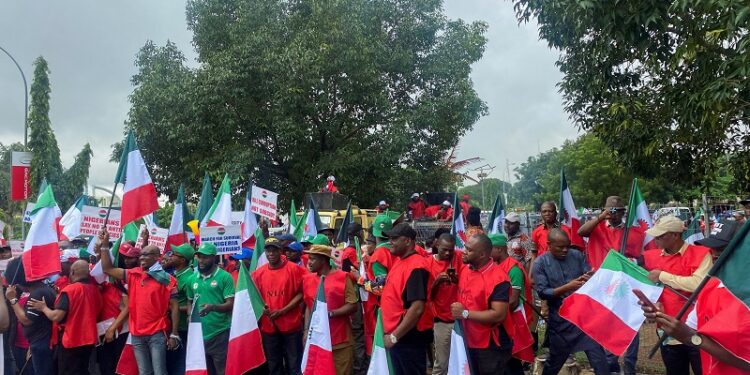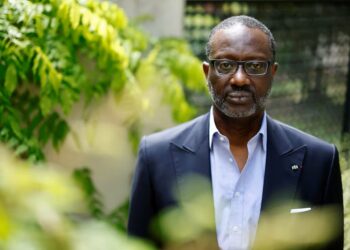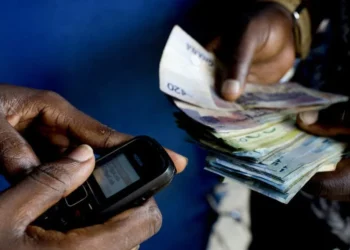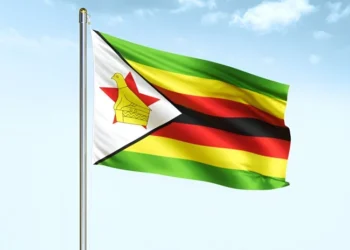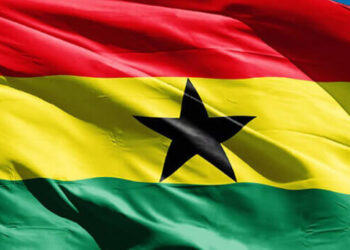Africa continues to face serious development challenges despite recent record growth rates. Such challenges as dependency, corruption, underdeveloped infrastructure and production sectors, and leadership and governance are some of the impediments to Africa’s quest for sustainable and equitable development. Subsequently, a number of African countries undertook political reforms, partially following the above economic policies, and partially in response to donors’ demands for such reforms in exchange for external aid. These reforms refer to “political governance.” Besides, the alienation between leaders and followers’ extreme poverty and the intensity of the struggle for the surplus do not create conditions favourable for strategies conducive to development.
What are the prospects for the future? It is not likely that there will be much improvement in most “Third World” economies because of debt obligations, trends in commodity prices, the increasing tendency towards North- North investments and North-North trade, trends in terms of trade, protectionisms in the industrialized countries, intensifying class conflict in the backward countries and the pursuit of wrong development strategies (see The Political Economy of Crisis and Underdevelopment in Africa [selected works of Claude Eleme Ake 1939-1996], edited by Julius O. Ihonvbere, p. 14).
The problems that face African governments are universal. But African societies are exposed to especially severe pressures, and governments must operate in an environment of high social demands and limited resources and capacity with which to meet them. These circumstances can generate an authoritarian reflex and the temptation to circle the wagons against all sources of potential opposition. The result is transitory resilience of the regime, but shaky political stability, declining cohesion, and eventual conflict or violent change. In recent years, many authoritarian governments in Africa have manipulated elections to remain in power indefinitely. They have done so by first, changing their constitutions to eliminate term limits for the president and, second, by rigging national elections and making it difficult for the opposition to participate. Notably, one recurrent topical issue of the political literature of developing nations is military intervention in politics, a fact that is closely linked with the frequency of baton change between the military and the civilians in these countries. Virtually every African state has experienced a military coup or spat of military coups or at best mutiny and/or insurrection. Military coups have therefore come to assume a negative trait of these states. Read more on page 4 of James Ohwofasa’s book with the heading; Democracy and Issues of Governance in African Politics: The Nigerian Perspective.
Democracy and Governance in Africa
The recent rise in coups in Africa (a pattern not observed in other regions) reflects a waning in regional and international actors’ willingness to enforce anti-coup norms in Africa. This is a result of a confluence of factors, including a regional democratic recession, an inclination by regional bodies to negotiate compromises with coup leaders, reticence to mount military interventions, and distractions of international actors with internal crises and the pandemic, among others. More than 114 million people now ruled by soldiers who have illegally seized power. A media report published by Al Jazeera in 2023, Mapping Africa’s coups d’etat across the years, noted that out of the 486 attempted or successful military coups carried globally since 1950, Africa accounts for the largest number with 214, of which at least 106 have been successful. This information is based on data compiled by American researchers Jonathan M Powell and Clayton L Thyne. One of such events happened on July 26, 2023, when Niger’s Bazoum was overthrown by the military. Al Jazeera also stated that, in January 2022, Burkina Faso’s army removed President Roch Kabore, blaming him for failing to contain violence by Islamist militants. In September of that year, there was a second coup by army Captain Ibrahim Traoré who forcibly deposed Paul Henri-Damiba. In April 2021, Chad’s army took power after President Idriss Deby was killed on the battlefield while visiting troops fighting rebels in the north. In August 2020, a group of Malian colonels removed President Ibrahim Boubacar Keita. The coup followed anti-government protests over deteriorating security, contested legislative elections and allegations of corruption. Similarly, nine months later, a countercoup happened, with Assimi Goita, who was named vice president after the first one, leading the second and becoming head of state. Still, other coups have been framed as protecting democracy. Examples of such coups occurred in September 2021, when the Guinean military overthrew President Alpha Conde in response to his abolition of presidential limits. Furthermore, in Gabon, the August 2023 coup occurred shortly after the announcement of incumbent president Ali Bongo Ondimba’s victory in an election widely perceived as fraudulent. The new junta called it a ‘Freedom Coup,’ ending the fifty-six-year-long rule of the Bongo family. A failed November 2023 coup in Sierra Leone also followed a disputed election.
- Coup Culture Epidemic in African Politics
This is a critical point, analyst says. In countries like Guinea and Mali, leaders did not lose popularity because they established genuine democracies that failed because this system of government is somehow incompatible with African realities. Instead, presidents atrophied support because they undermined their own democratic credentials in a context of rising instability and – in the case of Burkina Faso and Mali – jihadist insurgencies. One of the major consequences of the security situation is a multifaceted humanitarian crisis, with rising food prices and increasing poverty. On the other hand, inconsistent responses from the wider international community have further decreased the anti-coup pressure. Strategic interests and concerns over counterterrorism have led some international partners such as Morocco, Turkey, and the United Arab Emirates to forge pragmatic relations with new military governments, notably in the Sahel. Concerns that external pressure could push juntas closer to Russia or fuel increasingly radical anti-Western sentiment—as France has experienced in its former colonies—have also limited international responses. An increasingly multipolar global environment makes any unified anti-coup response more uncertain, with actors such as Russia keen on forging relationships with pariah states.
In the interim, Africa’s democratic project faces challenging times. Since 2020, soldiers have pushed out elected governments in six countries. Three presidents have defied constitutional limits to claim third term in office. Other leaders use subtler means to erode democracy, weakening the checks on their authority and harassing the political opposition. Non-compliance by member states frustrates the African Union’s progress in enforcing democratic norms. However, Africa has a busy election calendar in 2024, with 19 countries slated for presidential or general elections. The elections run the gamut from competitive multiparty elections to perfunctory electoral exercises. Two-thirds of these elections are packed into the last quarter of the year. Unfortunately, the possibility of post-election violence continues to diminish the critical role played by elections in institutionalizing and entrenching democracy. While analysts say, roughly half of the elections are unlikely to be competitive because of heavy-handed management of the electoral process by well-entrenched incumbents. These processes raise questions for the continent of what qualifies as a genuine election—and the legitimacy that emerges from an authentic popular mandate. Many of these countries must overcome long legacies of direct or indirect military government. For instance, conflict and insecurity continue to threaten democracy and human rights. Increasing levels of violence in Burkina Faso, Democratic Republic of the Congo, Mali, Mozambique, Niger and Sudan are particularly notable. Africa also remains a field of geopolitical competition as foreign powers—such as China, France, Russia, the UK and the USA—seek to maintain spheres of influence and to pursue their own economic and security interests. It will not be possible to secure a democratic future without addressing insecurity and governance deficits in their many manifestations.
Another driver of governance trends will be the access enjoyed by youthful and rapidly urbanizing populations to the technologies that are changing the global communications space, according to some experts. They noted that the relatively unfettered access to the internet via smart phones and laptops brings information—and hence potential power—to individuals and groups about all kinds of things: e.g., market prices, the views of relatives in the diaspora, conditions in the country next door, and the self-enrichment of corrupt officials. Issues of corruption and transparency are likely to become driving themes in African politics. The balance of power between official and non-official actors will likely shift, as networked activists assert their ability to organize and take to the streets on behalf of diverse causes. Overturning regimes in Africa’s often fragile states could become easier to do, without necessarily leading to better governance. The same technology vectors can also empower criminal, trafficking, and terrorist networks, all of which pose threats to state sovereignty. In sum, the digitization of African politics raises real challenges for political leaders and has the potential to increase their determination to digitize their own tools of political control. Though, some countries have even adopted technology to make the polls credible and accountable but in most cases, this has done little to dispel concerns. But in an ideal situation, Africa would still be able to do without such solutions. Democracy is bigger than any one election. No matter how perfectly organized an election is, if the turnout is low, if the political parties competing are on the same side, if the conditions for competition are biased, if citizens are not educated or informed about the stakes, or if there is no possible appeal, a country is still falling short of the democratic ideal. These things are matters of education policy, civic training, and strong institutions, and often escape international observation missions and rankings.
- How People Perceive Democracy in Africa today?
Despite its shortcomings, more Africans prefer democracy to any other form of government, according to the new report by the pan-African research organization Afrobarometer. In its flagship survey Africa Insights 2024 – the first of what organizers say is an annual series – 66% of Africans showed their appreciation for the democratic system of governance, while large majorities “reject one-man rule by 80%, one-party rule by 78%, and military rule by 66 percent”. These findings, the report says, are based on data spanning over a decade of research, “including our latest round of nationally representative surveys in 39 countries”. It cautions that while support for democracy offers reasons for optimism, “the real problem on the continent is rooted not in a demand-side failure of popular support, but in a supply-side failure by African leaders to deliver”. The report further indicated that support for democracy as a system of government was more resilient to economic and social deficiencies. With the growing levels of military coups on the continent, the survey states that while Africans express “high levels of trust in their militaries”, two-thirds (66%) don’t want the military to govern their country. “But that opposition is weakening”, as more Africans are also willing to tolerate military intervention “if elected leaders abuse power for their own ends,” the report says. Other key findings of the report show that calls for accountability, and rule of law, and support for democratic institutions have “held steady” over the last decade, “including presidential accountability to Parliament, multiparty competition, presidential term limit and media freedom”. But it laments that support for elections has dropped by 8% in 30 countries, even “though a large majority consider it the best method of choosing their leaders”.
Obviously, the juntas in Mali, Burkina Faso, and Chad—ranked among the countries most affected by terrorism in the Institute for Economics & Peace’s Global Terrorism Index—claim that restoring security or maintaining stability is the main motivation behind their takeovers. They argue that the deterioration of security in all three countries warrants exceptional measures, many of which conflict with their human rights obligations. In Burkina Faso, the junta issued a decree on April 13, 2023, that provided it with the right to curtail selected civil liberties. In Gabon, where former president Ali Bongo won a third seven-year term in disputed elections, military leaders cited a lack of credibility in the recent elections as the reason for the coup. In Niger, coup plotters blamed rising insecurity and a stagnant economy. Nonetheless, in spite of their popularity and stated justifications, the coups have failed to bring about stability and have exacerbated human rights and economic conditions.
The Path to Resiliency for Democracy in Africa
Finding a way out of instability and insecurity will therefore require building stronger democratic institutions that can withstand manipulation by political leaders, not authoritarian ones that exclude citizens and run counter to their aspirations. Several hindrances to democratic consolidation across the continent remained pertinent in 2023, namely, heads of state who gain or maintain power in unconstitutional ways, dominant parties that lack internal democracy, weak parliaments, unaccountable police and security forces, endemic corruption and the negative effects of geopolitical competition for influence in Africa. When governments are responsive, citizens are more likely to engage in addressing community needs and to be satisfied with their political system and optimistic about the future. Respectful and responsive governance has the potential to spur citizen action to solve critical development challenges – and may be the cure for what ails democracy. Steven Friedman, Professor of Political Studies at University of Johannesburg in a BBC News report noted that the focus should be on giving more and more people a say over more and more issues – instead of comparing how each country’s governance structure measures against Western democracies. Meanwhile, the good news is that support for democracy remains high, the worry is that this is not guaranteed unless Africans start enjoying the dividends of living in free and open societies, and participating in elections that are credible and accountable.
While the African Union and regional blocs should end their silence over flawed elections, extensions of term limits, and changes to constitutions that further entrench leaders in power and disenchant the population. International partners like the United States and the European Union should go beyond security in their counterterrorism efforts and focus on more enduring human rights strategies. In the absence of such efforts, coups will remain a viable and popular alternative for citizens, to their detriment. Likewise, Africa’s autocracies are responsible for over 75 percent of the continent’s conflicts, forced migration, and food crises. If the West wants to help stem the flow of these destabilizing forces, then it needs to be a steadfast champion of democracy in Africa. In addition, an important challenge that Africans face as they seek to create a democratic tradition is that many citizens are not aware of their national constitution, nor understand the role that the provisions of the constitution plays in the regulation of their relationship with their governments, as well as with their fellow citizens. For good governance to be truly entrenched, the majority of citizens must understand their constitution and see the law as a tool for protecting their rights and enabling other activities (e.g., entrepreneurship to create wealth) to improve their lives.
ـــــــــــــــــــــــــــــ
This article expresses the views and opinions of the author and does not necessarily reflect the views of Qiraat Africa and its editors.





